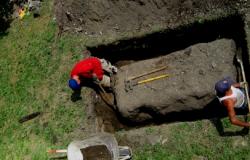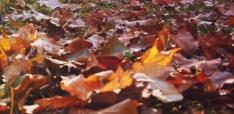Seasonal Conflict Zones: Chicago

Karl Muth explores the seasonal determinants of violence in Chicago.
My friend Tom Kirk and I spent some time exploring Chicago two summers ago. At the time, we both had recent experience in post-conflict zones. I’d been living near the Uganda – South Sudan border and Tom had been in Afghanistan. Our experiences, however, were arguably not so different from a summer in Chicago: more people have been shot in Chicago over the past ten summers than the allied casualties from enemy action in Iraq and Afghanistan over the past ten years combined.
Note that I talk about the summers in Chicago, comparing people shot during the summer in Chicago to casualties year-round in Iraq and Afghanistan – that’s because people in Chicago are generally shot in the summer. So many, in fact, that long holiday weekends (typically Friday, Saturday, Sunday three-day weekends) are often times when over 100 people are shot in a single weekend. Chicago is, essentially, a seasonal conflict zone.
This may seem unusual.
Steve Levitt and others at the University of Chicago often point to the seasonality of violence in Chicago as unexpected or strange. The University of Chicago’s Crime Lab (crimelab.uchicago.edu, a lab modeled on MIT’s Poverty Action Lab) has written more than twenty separate reports, studies, and blogs in the past year that suggest this seasonal crime in Chicago is a key public policy issue in the city. Eighty percent of people killed in Chicago are shot, most of them in the summertime.
If one looks at history, seasonal violent conflict scenarios are not unusual.
The sack of Rome by the Goths under Totila came after a year-long siege – Belisarius failed in freeing Rome due to infighting among his own lieutenants, allegedly made worse by the hot, humid weather at Portus that year, where they were camped on garrison for an extended period. The violence of 634 A.D., during the siege of Damascus, was allegedly not led by shortages and famine in the walls, but rather by tempers that rose with the temperatures of early September. The heat in the summer was intense enough that “even camels thirsted for shade” (al-Waqidi) and that “oils ran like water” (ibid.). Maybe this heat caused those under siege to simply give up? Is it reasonable, or credible, for people to have been driven to surrender partly by weather?
The notorious violence in Japan during and after the Boshin War was controversial (to contemporary and historical scholars) in part due to stories of marauding masterless samurai (ronin) who did not recognize the dissolution of the shogunate and pledged to destroy the merchant class backing Emperor Meiji, who were seen as selfish and backing a pseudoimperial mercantile kleptocracy. The periods of violence between the samurai and the merchants was worst during the summer of 1869, during the wake of the war, as men traversing hundreds of miles across the countryside were said to have been frustrated by unusually hot weather and shortages of food inland. But is this temperature explanation reasonable? Did a few hot months really change the attitudes of highly-trained troops?
Young people in Chicago, the primary contributors to the number of people shot each summer, are not subject to the pressures these early warriors allegedly faced. Instead, they are subject to other factors – factors that have nothing to do with heat or weather – that make summer the ideal time to kill rivals. Put simply: planning and patience in killing others is rewarded.
There are substantial dilution effects on enforcement coverage – the number of police officers does not adjust seasonally and hence through knowing or unknowing collective action cooperating murderers can overrun policing capacity. If one knows certain periods (holiday weekends during the summer) are already going to be full of murders, a rational killer would choose to kill during these weekends, while policing and investigatory resources are most stretched. This likely contributes additional “peakiness” to already-peaky trend data. Existing research unfortunately looks at murders as spur-of-the-moment events, which likely undervalues the likelihood that people strategically wait and commit murders during opportune times. We do not discount or dismiss the possibility that people plan around other decisions of this magnitude and we should not in the case of murder. My hypothesis is simple: trends that exist in murders will be persistent because there are incentives (reduced probability of capture) that encourage murderers to shoot and kill people during busy weekends. Being one of one hundred murderers running around, rather than one of ten, yields a far better chance of getting away.
The seasonality of Chicago’s violence was first noticed in the late 1970’s and early 1980’s, a (surprisingly) seldom-cited paper by Carolyn R. Block (C. R. Block, Is Crime Seasonal?, Ill. Crim. J. Info. Auth. (1984)) being among the first statistical analyses specific to Chicago (the paper is available here free of charge). Since then, the framework applied has been that murders are a thing that happens – like floods or earthquakes – and that murders happen to fit these seasonal trends but few, if any, scholars propose that murderers adjust the schedule of their killings to benefit from these trends. But murders are objectively unlike earthquakes – they are carried out by people with incentives to plan and schedule them advantageously, like insider trades of shares or arson involving insured real estate. If a person killing during the cold winter months has a 1/10 chance of getting caught and sentenced to 30 years in prison for murder and a person killing during the Independence Day holiday weekend only has a 1/25 chance of getting caught and sentenced similarly, and one visualizes the odds of staying out of prison as an investment, then the murderer makes a “profit” of nearly 7% over six months by waiting; it’s hard to argue against that investment in this low-interest-rate environment.
While I don’t doubt that a few people are killed on a whim, or because the murderer simply had a failed air conditioning unit on a hot day, I suspect many murders are committed over summer holiday weekends by people who have been waiting, conspiring, and planning for months. And I suspect our policy scholarship in this area is too quick to credit weather, rather than careful planning and rational cooperation, for the summer “murder season” in Chicago.


